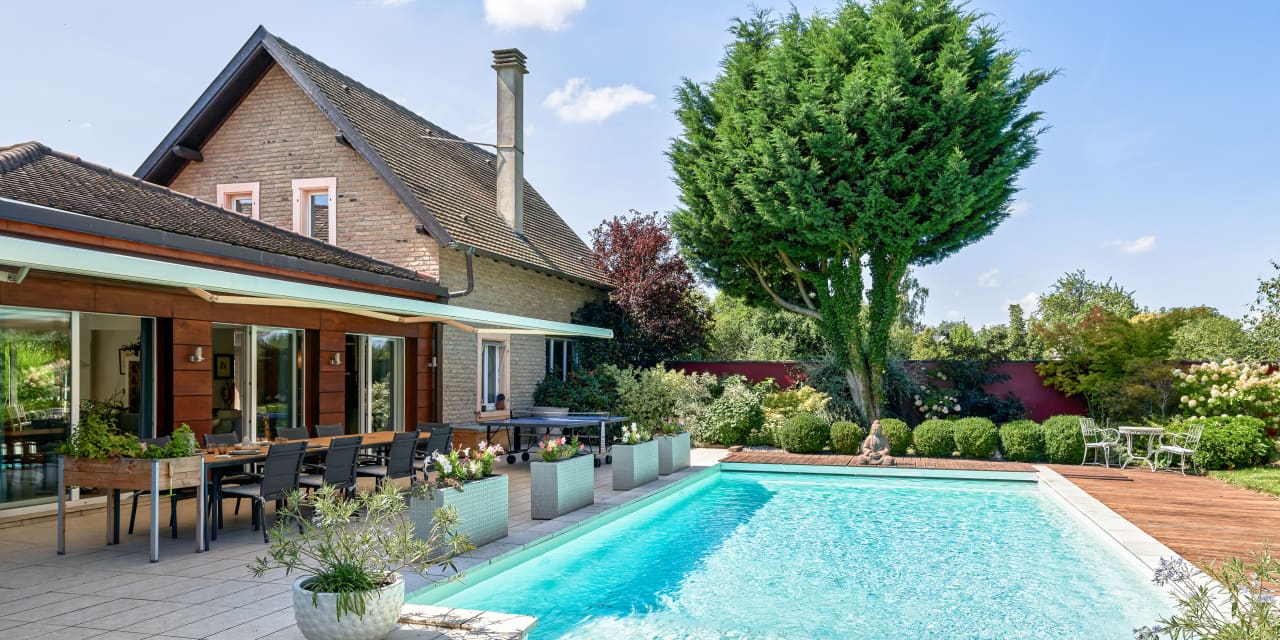For many, the idea of doing a home exchange is enticing: The thrill of a new destination, calling an inspired new space home away from home, living like a local for a little while. But what happens if you have a sprawling estate on the ocean to offer yet can’t find a property swap that comes close to the size and luxury of your own?
Enter: HomeExchange Collection, a division of Paris-based HomeExchange, a 30-year-old home-swapping company with over 100,000 residences across 133 countries and teams in Zagreb, Croatia, and Cambridge, Massachusetts. The new division launched last year and focuses solely on luxury property trades.
“Some of our members were overflooded with requests from people who wanted to exchange homes, yet their houses just weren’t as nice,” the company’s co-founder Emmanuel Arnaud says. “That’s why we decided to launch HomeExchange Collection, to better cater to the needs of clients with super-luxurious homes. It’s a space where they can meet other like-minded travelers who want to exchange their little piece of paradise they’ve built all around the world,” Arnaud says.
THE ITEM
HomeExchange Collection is an uber-exclusive community of home (and yacht and farm and castle) owners. And the criteria for membership is stringent. Homes are required to be valued at US$1.5 million or more, though US$2 million to US$10 million is typical.
“Location is a big part of it as well as amenities,” Arnaud says. “For example, if your house doesn’t have a pool in a prime sunny location, it’s going to be harder to make the cut.”
The houses themselves are anything but ordinary. Many come with five-star amenities such as boats, tennis courts, gyms, notable artworks, pools, daily housekeeping, and private chefs. Some of the most luxurious offerings include a 6,700-square-foot mansion in Chiang Mai, Thailand, with a full-time gardener, chef, maid, and part-time massage therapist; a penthouse in Manhattan’s Tribeca neighborhood with a 750-square-foot terrace; a coffee farm in Sao Paulo, Brazil; and a hillside villa in San Miguel de Allende, Mexico, with a 60-foot solar-heated lap pool and hot tub on the terrace.
Exchanges needn’t be reciprocal or immediate, either. If a member lends their home without reciprocity, they get GuestPoints to bank for a stay somewhere else at another time.
Members of the HomeExchange Collection can lend their homes to each other for a weekend, week, or month—and all include the benefit of their host’s insider intel. Other perks include a 100% flexible cancellation policy for guests, up to US$2 million in property damage protection, and access to the member service team 24/7.
PRICE
If your home is selected, an annual membership to HomeExchange Collection costs US$1,000, which gives members the opportunity for unlimited exchanges during the calendar year.
DESCRIPTION
With over 4,000 luxury homes in over 70 countries across the globe, from France and Italy to Thailand, Australia, and the U.A.E., even the most affluent are reconsidering the way they vacation. “Covid has invited everyone to rethink being in shared, public spaces, and instead having a whole place to themselves,” Arnaud says.
It’s a shift happening, in part, Arnaud says, because of growing environmental awareness.
“People are rethinking their relationship to consumption,” he says. “The idea that you have this very, very nice home sitting idle while you’re paying to be at a hotel sounds a bit absurd. Why not use these homes which would otherwise be empty?”
WHAT’S THE GOOD?
As a certified B Corp, HomeExchange Collection meets high standards of social and environmental performance, transparency, and accountability—and it’s the definition of responsible tourism. By nature, the concept of home exchanging is a more sustainable way to travel. By using pre-existing accommodations and encouraging people to live like locals, the local ecosystem remains undisturbed.
“We think our approach makes better use of the existing infrastructure, the existing homes, rather than building new homes and hotels,” Arnaud says.
The company takes its commitment to the environment one step further by calculating its carbon footprint every year, trying to reduce it, and contributing to global carbon neutrality by investing in social and environmental projects.
Meanwhile, members, through HomeExchange’s Solidarity group, can open their homes to relief workers or affected members in instances such as pandemics, fires, earthquakes, hurricanes, floods, or war.
“It started with Covid when we realized we had a lot of homes available and a lot of people who wanted to help. We launched the Solidarity program to help frontline workers in hospitals to be able to have a place where they could stay without having to commute back and forth,” Arnaud says. The program was then expanded to house Ukrainian refugees.
WHAT’S NEXT
Aside from continuing to grow membership and properties worldwide, Arnaud’s mission is for everyone to have the opportunity to go on vacation. The company has already partnered with an organization in France, Le Secours Catholique, which helps low-income families travel.
“We want to be able to help people go on a vacation, no matter who they are, and we are looking for the right kind of partners and the right kind of ways to put that into place on a wider scale,” Arnaud says.
Read the full article here




